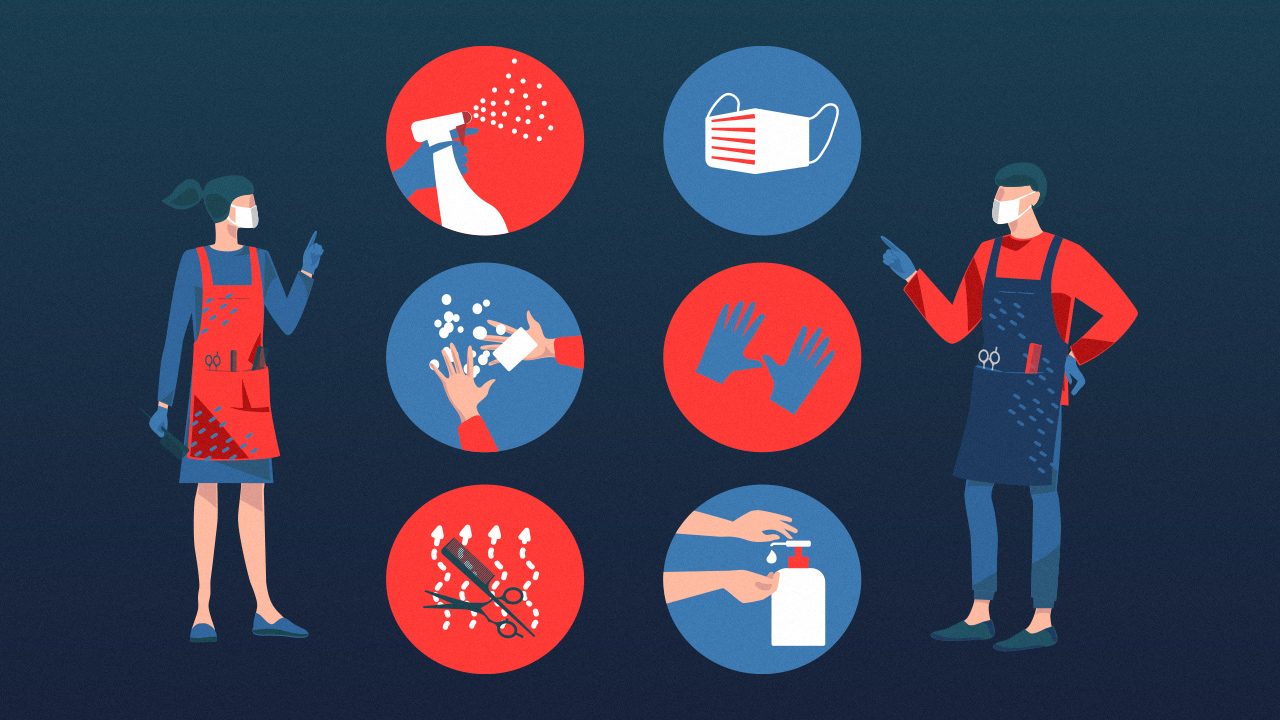SUMMARY
This is AI generated summarization, which may have errors. For context, always refer to the full article.

Business owners have to put their people – and their customers – first.
Going to get a haircut in our science-fiction world can be an adventure, but when I walked into the Basement Salon at SM Aura, I had a new appreciation for details – noticing how the pens were individually sterilized, the counter top wiped down with Clorox sheets, and how contact tracing was automated with each of us getting a pre-printed sheet with our name on it.
I couldn’t help but ask the owner/manager Michael Webb about his systems, and we compared notes.
We at Rappler have been extra cautious, putting in place protocols and systems, digging into research, estimating costs. Last March, we began to keep an Excel spreadsheet of everyone’s temperatures, with our managers checking their teams and families.
I do love learning about how to adapt, and I think Michael’s journey and choices give us a path forward. He came home to help his family business, leaving behind a VP post with a semiconductor company in the US. Those corporate processes and thinking helped infuse his choices, but it’s inevitably his values that dictated his path.
Working in California, Michael was steeped in the HIV battle and in legislation that was introduced by his father, former senator Freddie Webb. Since a salon is a high contact business, Michael put in place systems to deal with HIV and hepatitis. He said it was only a hop-skip-and-a-jump to use those systems for COVID-19. Looking at his software, he showed how he could go back 3-4 years and know exactly which staff members interacted with each customer.
As I was getting my haircut, I saw that he had separated us into clusters, with staff moving from customers in a systematic manner. Again, easier for contact tracing!
Some highlights from our chat below:
- Webb describes 3 protocols he put in place for HIV and hepatitis, which he has adapted to the coronavirus: “There are 3 basic hygiene protocols. The first is you sanitize, which is cleaning. Then you introduce another product, which is a disinfectant. Then the third one is when you render an object inert, which is when you sterilize.”
- Every tool used by his staffers are divided into 3 categories: non-critical, semi-critical, critical: “The ones that are critical are defined as those having a higher percentage of actually piercing skin.”
- He calls his protocol “SDS” – sanitize, disinfect, sterilize.
- Instead of wearing full PPEs, his staffers wear cotton lab coats. The salon has a steamer, and after each customer, the staffer’s outer garments are steamed, a more effective way, Webb said studies show, than keeping one plastic PPE in place all day.
- Webb follows the findings for disinfectants of the US Environmental Protection Agency. He gives us some of what he’s found, including what disinfectants he uses and where.
- For his staff, it’s a constant education. Keeping them updated about what he reads, his processes. He also has in place a testing process for his staff, and always emphasizes that the best way is to be aware of where they go and what they do.
While his salon is ready for Christmas, he says he is preparing for New Year’s Eve, and he shares some of the processes he is thinking about adapting, given that he cannot control all the moves of his staff during the holidays.
So for him, that most likely means increased testing. He drops a tidbit: the best time to test is 3 days after a potential infection.
Watch our conversation here.

I asked him about advice he would give to families for the holidays, and he was categorical: 1) Wear a mask and a face shield; 2) Be careful. Avoid going out if you don’t have to. If you want to go to a restaurant, order in; 3) Be hygienic, but avoid overkill at home.
To Webb, it is about knowing and understanding the coronavirus, and accepting that you have a responsibility not only to yourself and your family, but to your neighbors too.
“I am responsible for my clients and my people. That’s how I feel,” said Webb. “I don’t want to look back and say, ‘I should have, you know, I could have…’ I would rather say, ‘I did the best I could.’” – Rappler.com
Add a comment
How does this make you feel?
There are no comments yet. Add your comment to start the conversation.